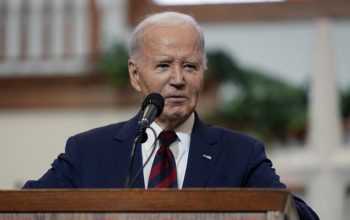news
GFDD/Funglode Supported a Panel Discussion at the CSW62
March 12, 2018
GFDD & Funglode partnered with the NGO Committees on Financing for Development to hold a panel discussion during the 62nd Session of the Commission on the Status of Women (CSW62) on Monday, March 12, 2018 at the Gallery Room in New York. The event, titled “Economic Empowerment of Rural Women Through Access to Innovative Financing and Effective Partnerships,” brought together a variety of experts who generated ample discussions on the effectiveness
of the financial services available to rural women. They also shared examples of successful strategies and at the same time proposed more effective measures to improve the welfare of rural women.
The panel discussion included a variety of high-level speakers such as representatives from the NGO sector, a representative from the private sector and one from the U.N. organization. Panel moderator Anita Thomas, Chair of the NGO Committee on Financing for
Development, welcomed the audience and gave an overview of the opportunities and challenges faced by rural women to achieve financial inclusion. Ms. Thomas also pointed out that even though women-owned small and medium-sized enterprises (SMEs) represent between 30 to 37 percent of all SMEs, they still face challenges that continue to cripple their growth.
At the opening of the discussion Ms. Sebnem Sener – Program Specialist of the Office of the UN Secretary General&rsquos
Special Advocate for Inclusive Finance for Development (UNSGSA) – highlighted the different programs developed by Queen Maxima of the Netherlands in 2009 in her capacity as the UN Secretary General&rsquos Special Advocate for Inclusive Finance for Development (UNSGSA).
Ms. Sener also explained that the programs developed by the UNSGSA seek to secure universal access to affordable, effective, and safe financial services to people in emerging and developing countries,
especially to rural households which account for more than 70% of global poverty.
The next speaker, Mrs. Vidhya Das, co-founder of Agragamee.org, presented the precarious conditions under which rural workers live due to the lack of effective government policies, of dysfunctional tribal support and the control of market prices fixed by big corporations. Despite these obstacles, women have organized themselves to develop counter initiatives – including dialogue with the
State – and the creation of NGO coalitions.
Mrs. Das also stressed the importance of strengthening the capacity of rural women to correctly save, borrow, insure and invest because they are key players in the agricultural sector. She resumed by stating that after many years of struggle, governments have begun to give financial and educational support to rural women who have adopted entrepreneurial ways of thinking.
At the same time Ms. Yashmin Fernandes,
Director of Development and Strategic Partnerships of Women&rsquos World Banking, provided information on key projects that have been developed in response to the low levels of financial access for women. The goal of these initiatives is to create innovative financing strategies and the necessary partnerships that ensure the economic empowerment of rural women. One of the success stories presented was the case of the Pafupi Savings, a mobile savings account designed for low-income
individuals from the rural areas of Malawi, especially for women with no previous access to bank accounts and difficulty in mobility and time constraints, as well as low levels of financial literacy. The savings account was developed with support from the U.N. Capital Development Microlead Expansion Program and the NBS Bank.
Ms. Fernandes concluded by stating: “When we look at how women are able to ‘press for progress’ in their own
lives, we know that true financial inclusion is not just about opening accounts but the meaningful use of these accounts to achieve financial goals and build a better future.”
The event concluded with Jonathan D&rsquoOleo Puig’s presentation, special guest of GFDD/Funglode. As a Dominican economist and entrepreneur, the panelist argued that sometimes it is necessary to undergo destructive processes to come up with a much better product or
situation.
Mr. D&rsquoOleo also discussed the significant impact economic empowerment through education has on rural women and their families. By partnering with different government institutions through their programs he explained that contrary to what many people think, long-term subsidies do not guarantee the economic stability of an individual in the long run. And that short-term subsidies combined, with educational programs, can actually have long-lasting results
not only for the individual but also for the entire economic structure.
Ms. Anita Thomas thanked the panelists for their keynote remarks, and then opened a lively and informative Q&A segment with the audience.







